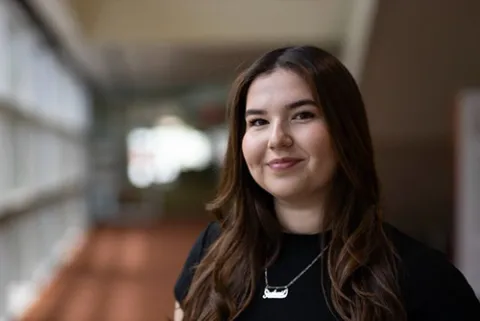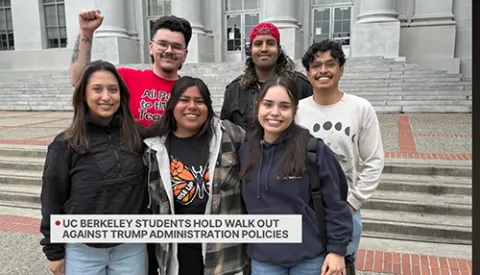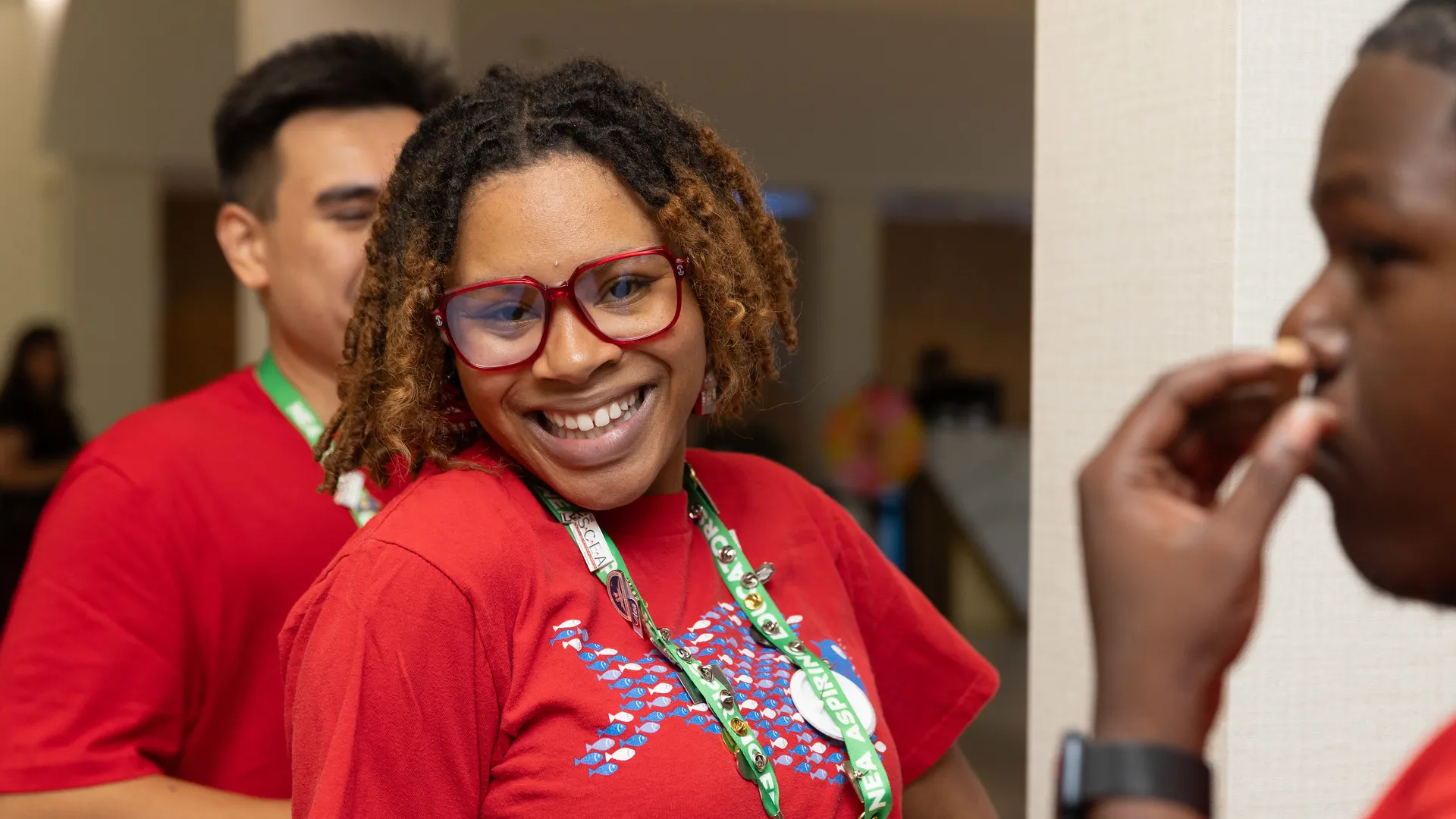Key Takeaways
- The Aspiring Educators Conference trained future teachers to advocate and mobilize for policy change.
- Participants stressed local action and collective efforts to improve public education.
The 2025 Aspiring Educators Conference (AEC), in Portland, Ore., brought together hundreds of future teachers to build community, deepen their understanding of the profession, and take bold action on the issues shaping the future of public education.
For many attendees, the challenges they face—unpaid student teaching, low starting salaries, and threats to immigrant communities—made it clear that learning to advocate is a must.
The urgency came into focus during the conference’s advocacy workshop, where Aspiring Educators prepared to take action in their own communities.
Participants learned how to meet with elected officials, organize their peers, share their personal stories to press for change back home, and more.
Working toward paid student teaching

For Stephanie Chávez of Illinois, the timing could not have been more urgent.
A strong advocate for paid student teaching, she explains, “I could make it to the very last step of my undergraduate degree and have that be the step that determines whether or not I complete it.”
Chávez is entering her senior year this fall at Elmhurst University and preparing for a semester of unpaid student teaching.
“There’s a chance that I would have to abandon my studies and leave college with an unfinished degree,” she says.
Chávez, the daughter of Mexican immigrants and a first-generation college student, has spent the past year organizing support for legislation that would help student teachers get paid for their work.
The proposal, which has passed the Illinois House and is now in the state Senate, would require the Illinois Board of Higher Education to offer a $10,000 stipend per semester for student teachers.
At the AEC, Chávez says she hopes to strengthen her organizing skills and learn how to build alliances beyond education circles. “Of course, unionism is super important,” she says, “but I’d also like to learn how we can partner with community organizations [and] earn the support of [non-educators].”
She emphasizes that the goal is to build a more sustainable profession.
“It’s not for me or my class, it’s for the future of our profession,” Chávez says. “To make sure that … we don’t exploit educators for their labor more than we already do.”
Building a more sustainable path into the profession

Across the country, AEs like Chávez are speaking out about the growing financial burden of entering the profession, especially at a time when districts are struggling to fill vacancies and retain early career educators.
In Connecticut, Hannah Spinner is focused on increasing pay for new teachers, many of whom work second jobs just to make ends meet.
“I’ve always known I wanted to be a teacher, but I also knew traditionally that what comes with it is a low salary,” says Spinner, an elementary education major at the University of Connecticut. “You never want someone to be dissuaded from doing what they love just because of pay.”
Spinner says she hopes better compensation can improve retention in a field where burnout is common.
“It’s already exhausting enough to work with children all day,” she says. “But then to have to work a second job to make sure you can pay your bills and afford to just basically live—it’s really disheartening.”
Back home, Spinner and her peers have set-up meetings with state lawmakers to push for policy change. But she says there is more work to do, especially in reaching students at community colleges or in smaller programs who may not even know the AE network exists.
“There are so many Aspiring Educators who … just don’t know that the program exists,” she says. “I’m hoping to learn some ways to more engage people.”
Creating safer, more inclusive schools for immigrant students

Gabriel Mendoza Jr. knows what it means to cross the border for an education.
“I was born and raised in San Diego and Tijuana,” Mendoza says. “A lot of my close friends were undocumented and crossed the border back and forth to get an education. We all fundamentally knew that … was the way to leap forward and get ahead in life.”
Those early experiences shaped how Mendoza views his role as a future educator. At the conference, he joined sessions focused on how teachers can support immigrant students and ensure schools remain safe, welcoming spaces for all.
“When we have the federal government knocking at our door to try and take our students or take their families … what we can do as future educators [is] make sure that our schools are safe havens for our communities,” he says. “That begins with me.”
Mendoza stressed that real change starts at the local level and hopes other future educators recognize the impact they can have. “Education is a fundamental right for everyone, and our students son nuestro futuro—are our future. We have to do everything we can to protect them.”
Preparing to lead
Despite focusing on different issues, Aspiring Educators at the AE Conference shared a common goal to ensure that the next generation of teachers—and their students—are supported, respected, and heard.
Spinner summed it up nicely: “Community is key. One person can start something, but it takes a village to really enact change.”


